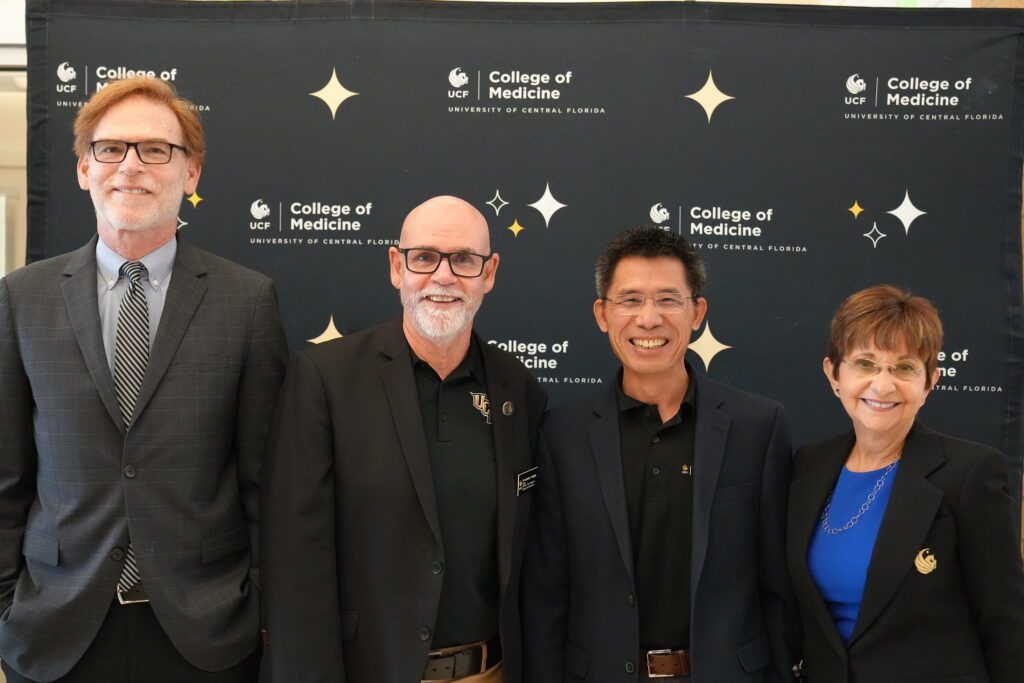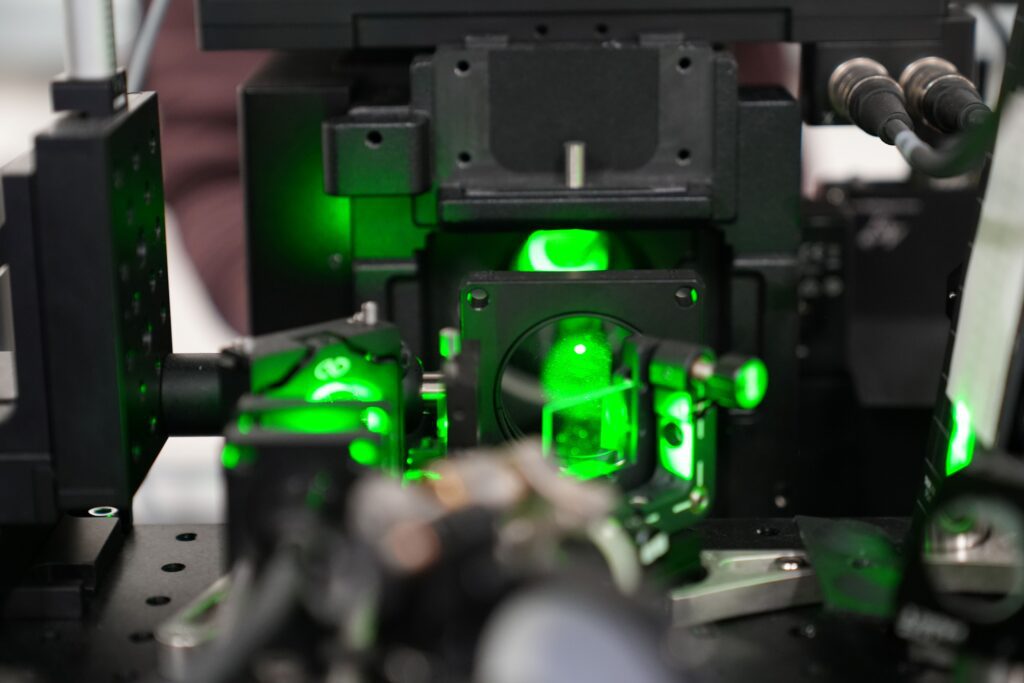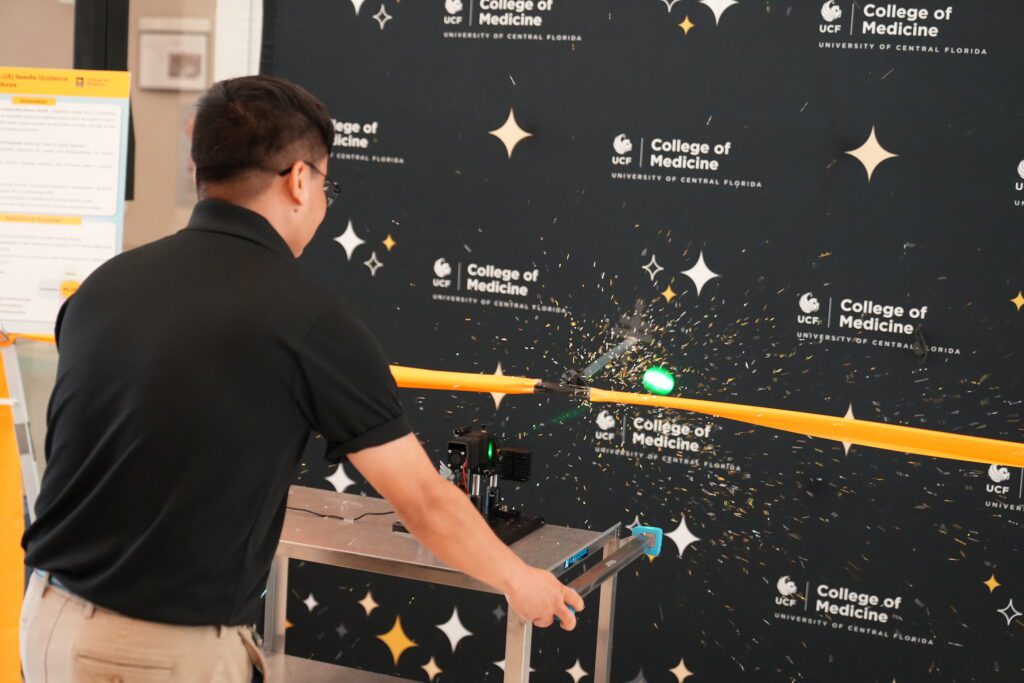Physicians and scientists will work side by side in a new University of Central Florida research lab to advance light-based technologies that can prevent, detect and treat disease.

Scientists from the university’s world-renowned College of Optics and Photonics (CREOL) and physicians and biomedical scientists from the College of Medicine commemorated the opening of the new lab Friday at the College of Medicine’s Burnett Biomedical Sciences building in Lake Nona.
They were joined by Dr. Bruce Tromberg, director of the National Institute of Biomedical Imaging and Bioengineering at the National Institutes of Health. He leads a national research team focused on developing technologies for biomedical imaging and therapy to improve health.
“These technologies will allow physicians see how the body works in real time – with noninvasive procedures for patients,” said Dr. Deborah German, UCF vice president for health affairs and dean of the College of Medicine. “Working together, we can create advanced technologies that will provide better care to all of us.”
Dr. David Hagan, CREOL dean, said the lab’s location in Medical City will provide opportunities for biophotonics researchers to learn from clinicians. “No matter how smart you are in biophotonics, you don’t know what’s happening inside the body,” he said. “The real trick is getting doctors talking to scientists, When that happens we can push the boundaries of what light can do for health.”

UCF medical and biophotonics experts are already working on several important research projects, including:
- Using light and sound to improve the placement of epidurals during childbirth. Physicians place the epidural in a mother’s back by feel, but in about 30,000 cases a year, the epidural is misplaced, causing temporary paralysis or more serious complications. UCF researchers have created a new technology that uses sound and light to help physicians better place the anesthetic. Sound bounces off the spinal cord for proper placement. A tiny light in the needle illuminates the area, providing a picture that is 10 times higher resolution than ultrasound.
- Fiberoptic sensors that can determine immediately if blood is clotting during heart surgery. Currently, when a patient is on a heart-lung machine during surgery, doctors must use a chemical blood test to see if the blood is clotting. But the test takes 20 to 30 minutes to complete. The fiberoptic sensor can determine immediately if blood cells are clotting so physicians can act faster to minimize the risk of stroke.
The new lab will also provide opportunities for UCF undergraduate, graduate, medical students, residents and fellows to conduct research. Its location in Medical City will provide interdisciplinary research opportunities for UCF physicians and scientists to work with UCF Lake Nona Hospital, UCF Lake Nona Cancer Center, Nemours Children’s Health and the Orlando VA Medical Center.
Dr. Tromberg said the UCF partnership is coming at the perfect time as the NIH recognizes the power of bioengineering and artificial intelligence to improve healthcare. “This is the right time for you. Traditionally, many medical schools have been reluctant to form partnerships like these because doctors and engineers don’t speak the same language. But Dean German is coming to you guys,” he said, pointing to CREOL faculty and founders who attended the celebration.
Dr. Guifang Li, a principal investigator on the epidural study, said he is excited to be using his research to help improve health, “Health is personal,” he said. “And technology is all about looking for solutions. If the doctors can help us understand the need, we can work together to solve it.”
One of his post-doctoral scientists, Dr. Sudip Gurung, attended the celebration and created a laser ribbon cutting in honor of the partnership. He also will be working in the new lab to perfect the epidural technology. “Fiberoptics has changed the world,” he said. “It’s exciting to be creating applications that can change the world for healthcare.”
